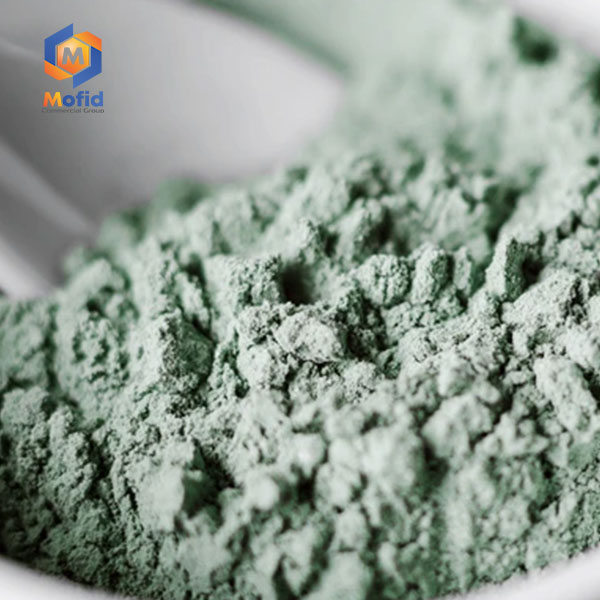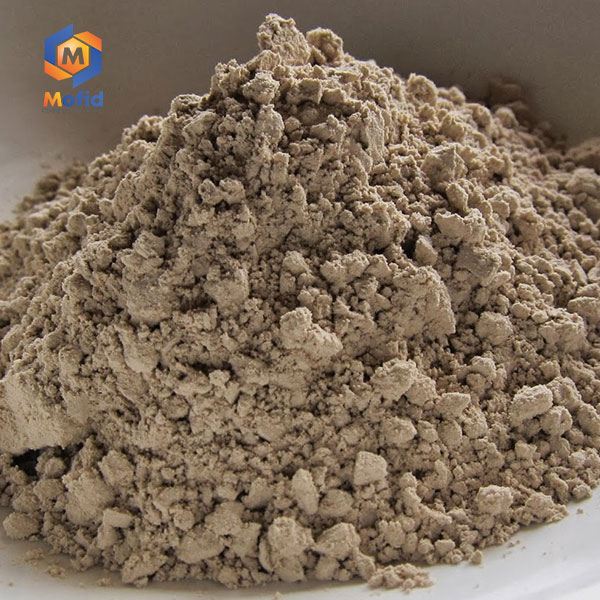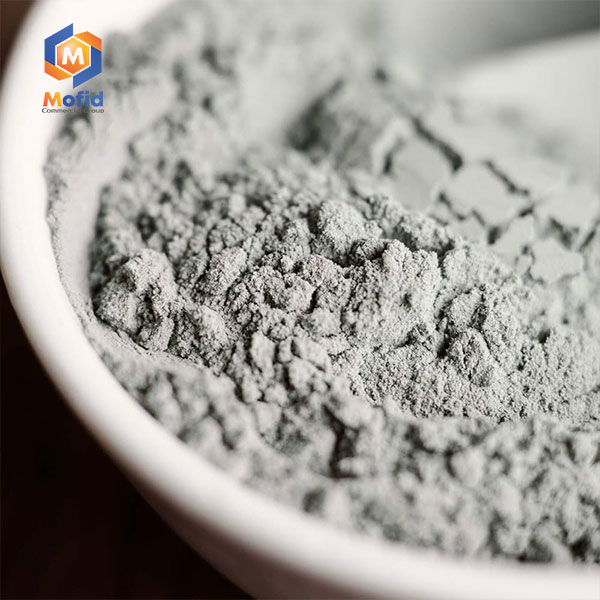Bentonite clay is a completely organic and mineral substance with the molecular formula Na, CaO)(Al, Mg)(Si4O10)3(OH)6·nH2O, with clay as its primary component. Bentonite has a three-layer aluminosilicate structure, and its main constituent is montmorillonite, which possesses gelatinous properties. Due to the van der Waals bonds between its particles, bentonite has a very high absorption capacity.
As a result, the widespread use of bentonite is due to the following properties of this mineral bentonite:
- Plastic properties
- Gelatinous properties
- Absorptive properties
Origin of Bentonite Rock Formation
Bentonite clay is primarily formed in shallow waters and areas with moderate climates. Additionally, it is formed from the decomposition of volcanic ash in saline environments. These factors make this mineral a type of mild alkali. Bentonite clay is abundantly found in Iran, particularly in cities like Khorasan, Semnan, and Isfahan. It can be extracted from open-pit mines in these areas at minimal cost.
Further Introduction to Bentonite Clay
From volcanic ash, seven types of clay are derived, one of which is bentonite clay. Other types include kaolin, illite, vermiculite, chlorite, iron oxyhydroxide, and allophane. A key and unique feature of bentonite smectite is its strong liquid absorption capability, which surpasses other clay samples. Additionally, bentonite clay contains microscopic layers of silica capable of absorbing various liquids and even toxins.
Types of Bentonite Clay
There are four types of bentonite clay:
- Calcium bentonite
- Sodium bentonite
- Potassium bentonite
- Aluminum bentonite
Among these, calcium and sodium bentonites are the most abundant and commonly used.
- Sodium Bentonite: As its name suggests, it contains a significant amount of sodium in its molecular structure and has a higher water absorption ability than calcium bentonite. It can absorb water up to 15 times its original volume, causing it to swell. Sodium bentonite is mainly used as a raw material in industries, for suspension agents, concrete and cement tile production, binders, waterproofing materials, natural adhesives, and more.
- Calcium Bentonite: Also known as calcium montmorillonite, it contains calcium instead of sodium and is the rarest type of smectite clay. Natural calcium bentonite has an opaque green color and, unlike sodium bentonite, is more ion-absorbent. Its high detoxification properties have made it popular as a natural detoxifying agent for improving skin quality and removing toxins. This type of bentonite clay is almost alkaline, with a pH ranging from 8 to 9, and is tasteless, odorless, soft, and non-gritty.
Raw and Processed Bentonite
As previously mentioned, bentonite is a type of clay with a fine-grained structure, primarily composed of montmorillonite. Bentonite is generally formed by the weathering and alteration of volcanic ash in environments containing some water.
Processing of Extracted Bentonite
After extraction, bentonite typically contains significant moisture, and it must be dewatered and dried using a centrifuge (rotary dryer) to reduce its moisture content from about 55% to less than 15%.
In the second step, bentonite rocks are crushed and reduced to smaller sizes using hammer mills or ball mills. The crushed bentonite is then ground to mesh sizes of approximately 45 to 155. To produce micronized bentonite, specialized cyclones and sieves are used.
Applications of Bentonite Clay
Due to its unique properties, bentonite clay has diverse and extensive applications across various industries, including:
- Agriculture
- Soil improvement: Enhances soil texture and retains moisture.
- Livestock feed: Acts as a feed additive to absorb toxins and improve digestion.
- Fertilizer production: Retains nutrients and prolongs their release in organic fertilizers.
- Drilling and Petroleum
- Drilling mud: Provides suspension, viscosity, and stability in oil and gas wells.
- Well sealing: Prevents water infiltration into drilling wells.
- Construction and Civil Engineering
- Dam and canal construction: Creates impermeable layers to prevent water leakage.
- Building materials: Enhances strength and adhesion in cement and construction grouts.
- Food and Pharmaceutical Industries
- Liquid filtration: Used as a clarifying agent in juices and beverages.
- Supplement production: Absorbs toxins in dietary and medicinal supplements.
- Cosmetics and Personal Care
- Face masks and skincare: Absorbs oil and toxins in skin and hair care products.
- Soap and lotion production: Softens and absorbs impurities.
- Metal and Foundry Industries
- Mold making: Acts as a binder to hold sand molds together in casting.
- Metal refining: Aids in metal extraction and purification processes.
- Environmental Protection
- Pollution absorption: Removes heavy metals and toxins from soil and water.
- Landfills: Covers waste disposal sites to prevent pollutant leakage.
- Other Uses
- Oil purification: Refines industrial and edible oils.
- Paper production: Serves as a filler and texture enhancer.
- Granule production for feed and industrial applications.
Ordering Bentonite Clay from Bazargani Mofid
To purchase and place orders for various types of bentonite, including sodium, calcium, and processed bentonite for specific applications, you can contact the sales team through the phone number or email listed on Bazargani Mofid’s website.
At Bazargani Mofid, our goal is to deliver high-purity, quality products for use in various industries. We also offer international shipping in compliance with global standards. Our sales team provides consultation to help you choose the type of bentonite best suited to your needs.



